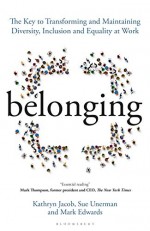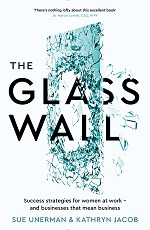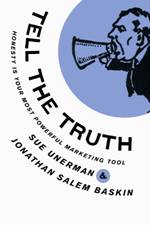Last month the future of account management was questioned by an IPA study. The report, by Hall and Partners, suggests that the problem is multi-faceted. Not enough focus for the role, not enough diversity, clients want more for less, a lack of understanding of what account managers actually do: “The study quoted one procurement lead as saying: “To be honest, no-one has ever really explained what the account management team does.””
Account management must evolve as so many roles will. Times are tough. With any job today you need to show how you add value. No-one can rest on their achievements. We are all under pressure to show how we contribute today and tomorrow.
There is another important facet to anyone’s job. This one is internal, how you feel. For real job satisfaction: you need to be in love with what you do.
Ronnie O’Sullivan is referred to by some pundits as a snooker genius. And for good reason. Since turning professional in 1992, he has won six World Championships, a record seven Masters titles, and a record seven UK Championships for a record total of 20 titles in Triple Crown tournaments. One of 11 players to win a career Triple Crown, he holds the all-time record for the most ranking titles with 37 including winning the 2020 World Snooker Championship. He also holds the record of being the youngest winner of a ranking title, winning the 1993 UK Championship aged 17 years and 358 days, as well as being the youngest winner of the Masters in 1995, at 19 years and 69 days old. He won 38 consecutive matches in ranking events after turning professional, which is also a record. He has earned career prize money of over £11 million, the highest amount of any snooker player.
He is obviously good. But he did not sail through the World Championship this year. In fact, during the semi-final he was losing to Mark Selby until the exciting final frames.
He did rally, and win. In the after match interview he was congratulated on reaching another final. His reply was very interesting. He refuted the praise from the interviewer for reaching the world championship final. He denied that it was special. He dismissed the achievement. He talked instead about how he felt about how he had played. He said: “I’ve just been trying to find something from somewhere for days, and it gets tiring… the ball is going all over the gaff.. I just tried to make the score look respectable.” He went on: “It is all about the cue action.. it’s about the beautiful game played beautifully” not about winning, not about the stories or legends. He said that he was only looking forward to playing again if he could find his “cue action”. He joked about how he was going to spend the time until the final looking for this: “I might go on Amazon later and see if that Jeff Bezos bloke can deliver me one asap”.
In “cue action” O’Sullivan was referring to finding the “flow”, the joy of being so immersed in what you do that everything seems to fall into place. It is a sporting phenomenon but also, as Connected Podcast guest Frances Ralston-Good pointed out, it applies to work. If you want to be brilliant at your job, you have to be immersed in what you do, you have to love what you do. As O’Sullivan went on to say, post victory at the final, you have to respect the game.
O’Sullivan’s tactic for getting back the “cue action” was to lean into the table physically. This is great advice, if you allow yourself to be disconnected from the work then you can neither respect it, nor find your flow.
Did Ronnie get his cue action back? He beat his opponent in the final 18 frames to 8. So, yes, he did acquire his cue action. And not from Amazon. He certainly leant into the table. And there was a turning point about a third of the way through the final when Kyren Wilson had taken an easy shot rather than a shot that would be more difficult but deliver a strategic edge in the long term. (Snooker is the perfect game for proponents of long term effectiveness). Ronnie’s self doubt and over thinking seemed to melt away. He found his cue action. He won the championship.
Whatever the role in advertising, if you find your flow, if you connect with the work, then you will excel at what you do, you will add value to the business.



With near empty offices what happens to office culture?
Sunday, September 27th, 2020What happens to company culture without everyone in the office most of the time?
For months now we have been working remotely in most parts of advertising and media. Many offices have been closed. Around the world many have opened up again, although in the UK this is recent and then just for a proportion of the workforce in many cases. The Economist states “The fight over the future of the workplace has just begun”, and points out that the office structures we have grown up with are based on the emergence of corporations in the late 19th century.
It is time to re-imagine what the workplace is for. If you took someone who might have known Charles Dickens and time travelled them to an office in 2019 they would be undoubtedly shocked and surprised by mobile phones, by computers and by the number of women around. They are less likely to be at all shocked by the overall look of the place. Lots of people with their heads down at desks working away with some managers walking around occasionally to see what they were up to.
Lockdown and Covid have challenged this dramatically. People have had radically different experiences. Working from home has been a curates egg – good in parts. Suiting some people some of the time, leaving some reluctant to go back to how it was, and others desperate to return to what was normal.
This is unlikely to happen entirely. A hybrid model of remote and flexible working, with offices re-imagined for the better is likely. These experiments are underway, and they do raise another question. What is office culture without everyone in the office?
Our global MediaCom ceo Nick Lawson has frequently said that a great culture is crucial.
Without it, jobs become transactional, not much fun, lacking purpose. With it the team pull together, go the extra mile for each other, and enjoy the time spent working. It fuels morale – that magical element that drives confidence, enthusiasm and work ethic.
Armies need good morale, and they don’t work out of an office, so let’s look at lessons from the military. Artis International, an Arizona think-tank have conducted research into fighters in Iraq. They have correlated bravery in action with soldiers having “fused” their identity with fellow soldiers. So an active programme of building team identity is crucial to a good culture.
We are not soldiers. Brands with Values chief Adrian Walcott pointed out at a recent conference Media360 panel that we might better off if we think like farmers. Measure and cultivate your culture so that you get the best from everyone. Walcott said: “You need to understand what is going on in your ecosystem at work so that you can create shared mindsets and values and actively manage this on an ongoing basis.”
This is manifested in how everyone behaves, and is not dependent on the bricks and mortar of the building. It is about the lived experience of being at work, in the office or remotely. It is crucial for us all to be careful to curate a sense of belonging for everyone.
Of course we are not farmers either. For a culture to be successful it needs to be owned and worked on by everyone at work. Culture isn’t something that happens to you. Management cannot dictate a good culture. Managers can and should create policies to prevent a toxic or bad culture but a good culture has to be owned by everyone. A good culture at work is something that every employee creates, enhances and contributes to, every day.
The analogy for me is more like one of a chorus, in sync, where the whole is greater than the sum of the parts, where there is time sometimes for a soloist, but where everyone’s voices coming together creates something that no-one alone can claim for their own. Where every member listens to each other, makes their best contribution in their own way. Where sometimes there is dissonance, but where it always gets resolved.
In a great culture each person enhances each other’s performance. Helping the collective is rewarded. Without everyone in the office most of the time leadership of a good culture is even more crucial. And in a good culture there are cultural leaders and advocates in every single seat, wherever that seat is located.
Posted in MediaComment | No Comments »